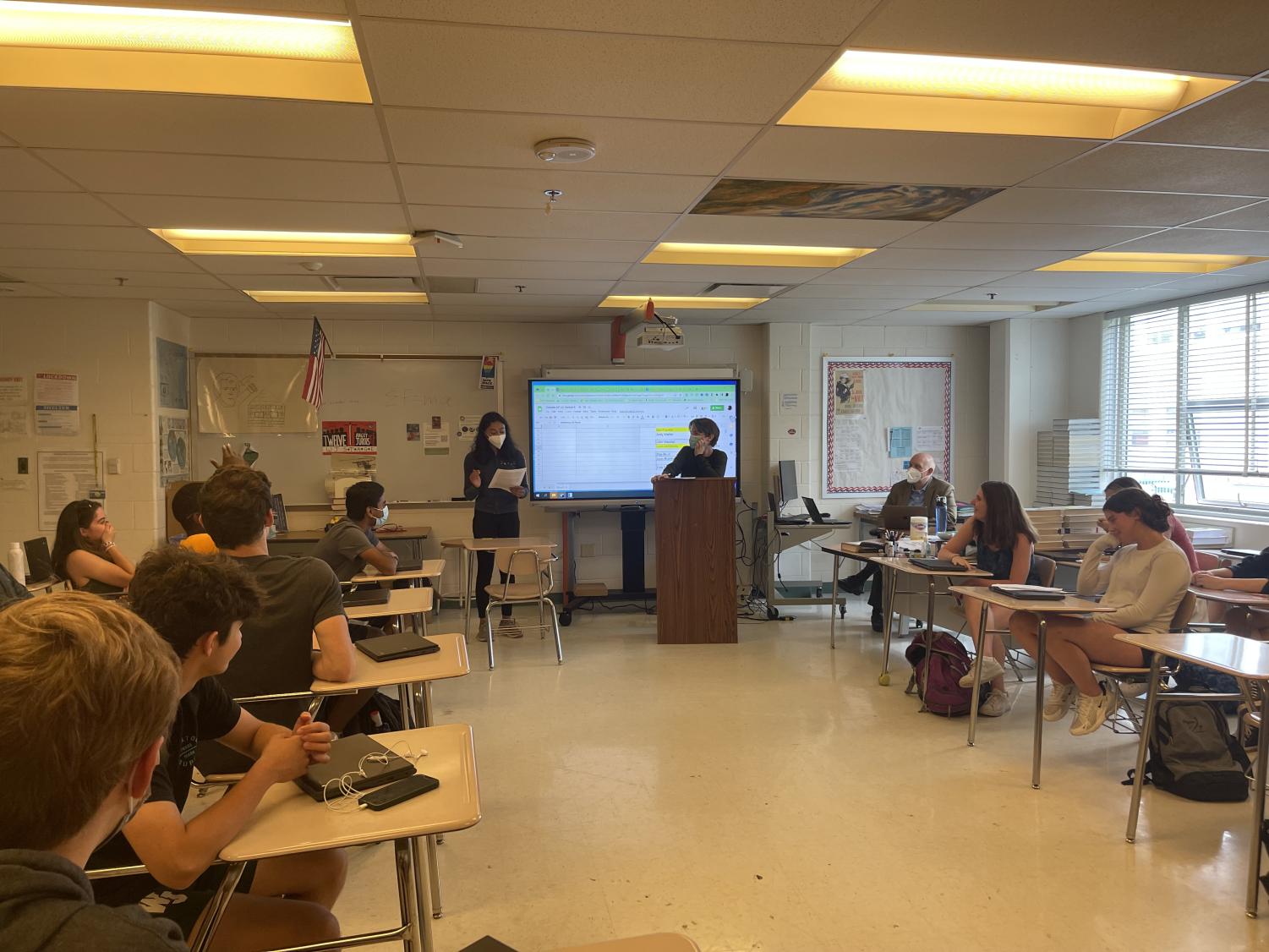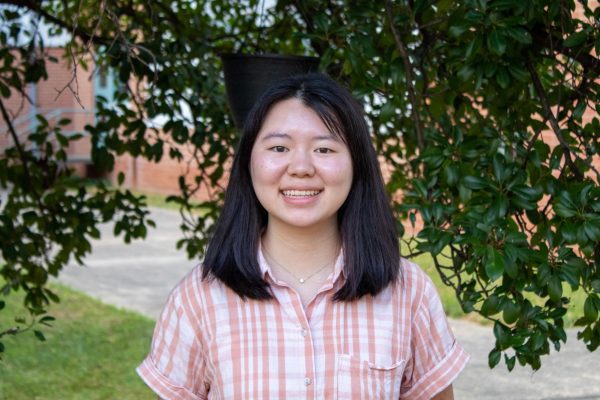As AP exams wrapped up in early May, teachers of AP US History announced a new activity, one that is fun and interactive for their class for the post-AP exam weeks—debates.
In the debates, each student selects and represents a historical figure, arguing against their opponent’s figure, to try to win the title of “Most Influential Person in United States History.” The debates consist of three-minute constructive speeches, two-minute cross-examinations and one-minute closing statements from both students. The judges—the rest of the class—take a vote to decide the winner of the round.
The WJ tradition of post-APUSH Exam debates started over 15 years ago when APUSH teacher Nathan Schwartz spotted the idea in an issue of Social Education, a social studies journal.
“Kids like to be competitive. People like to rate things, saying this is better than that,” Schwartz said. “It’s important for kids to get up in front of an audience and articulate ideas. These are some of the reasons that made the debates the perfect project to do after the AP exam.”
Simmons has also been doing the debates in her classes for over 10 years. “I really like debates because it helps students practice public speaking in a small way, which is a skill that, especially after two years of Covid virtual learning, I feel like we struggle with,” Simmons said.
The debates give students the opportunity to think critically about who has the most historical influence and research figures that may not have been focused on in the APUSH curriculum, which is why students cannot choose US Presidents.
When sophomore Healey Morgan reflected back on what she learned throughout the year, the impact of religion, specifically Christianity, on America stood out to her. She chose to represent George Whitefield, an 18th-century preacher during the Great Awakening, and debated Karl Marx and Ruth Bader Ginsburg.
“I based my debate around his impact in revitalizing Christianity in the colonies, and how the creation of Christian American identity influenced the entire foundation of the country,” Morgan said. “It was really interesting to me to learn how much George Whitefield had shaped US history and impacted so many different things that I didn’t know before.”
Simmons and Schwartz have been pleased with the debates so far. “Everybody has had a core argument that they’re making and they’re doing a good job of backing up that core argument. I’ve been impressed with that,” Simmons said.
To add more fun to the debates and help students think outside the box, Simmons and Schwartz try to pair people who have no connection in history at all, such as Pocahontas vs Albert Einstein or Ray Kroc vs Kanye West.
Sophomore Leora Leavey chose Supreme Court Justice Ruth Bader Ginsburg, who she looked up to before the debates. In her research, Leavey noted the barriers that Ginsburg broke down and Ginsburg’s key court cases, both of which she mentioned in her argument.
“I definitely learned about how influence is influence whether it’s good or bad, which is so interesting to explore because, with RBG, she had a positive influence over women’s rights and civil rights. But she also had negative influence,” Leavey said.
Many students, like Leavey, explored the definition of historical influence in addition to their figure. It is interesting for Schwartz to see students expand their notions about what is historical influence.
“The most interesting idea about the debates is: What is influence? Sometimes students will think it must be the political people that are really influential, like Alexander Hamilton or Benjamin Franklin, but it never occurs to them that people who develop tech are really influential to their direct lives. Cultural figures, musicians, and artists greatly affect the way we live,” Schwartz said.
Schwartz is holding a tournament-style debate, so round winners compete until one final winner emerges.
“You can never predict who is going to win,” Schwartz said. “There are certain figures that do well year after year, like Alexander Hamilton, Martin Luther King, Frederick Douglass, but we never know the winner for sure. We’ve had a year where Norman Borlaug, the guy from the Green Revolution, won. That unpredictable part is fun.”
Some students select a less well-known historical figure. Sophomore Colin Tierney represented Thomas Midgley, an engineer who invented leaded gas and certain plastics and contributed to aspects of mass destruction.
“[Midgley] is super important, but not many people know about him. I had never heard his name before I did this. I chose him because I wanted to learn about him and educate other people about him. I feel like more people should know about him,” Tierney said.
Tierney put a lot of effort into crafting a strong argument for Midgley. “It was actually really hard finding sources. I had to scour the internet and dig around for hours to find sources that would provide new information that I hadn’t already found. It definitely improved my research skills,” Tierney said.
The debates also helped people train their ability to think on their feet. Since debaters don’t know ahead of time what questions their opponents will ask in the cross-examination, they are challenged to recall information from their research and answer questions on the spot.
“I liked the back and forth between the two opponents and being able to form an argument on the spot. It led to a more interesting debate than just people reading out their opening and closing statements,” Morgan said.
Although the format of the debate is the same from previous years, the spirit was slightly lower.
“In the past, I’ve had students dress up as their person and come in. Once, someone came in as John Marshall and they wore white robes. I had someone who was Steve Jobs and came in barefoot wearing jeans and a turtleneck sweater. I feel like this year is a little bit more subdued. We’re all kind of slowly re-acclimating to school and maybe in future years, people will get that excited about it again. I’m just happy that people are standing up in front of the class and speaking,” Simmons said.
Students who win the debate will get to take away a President Pez, but every student will gain something from this activity– new knowledge about American history, fresh perspectives on historical influence, and practical skills in research, public speaking and critical thinking.









































